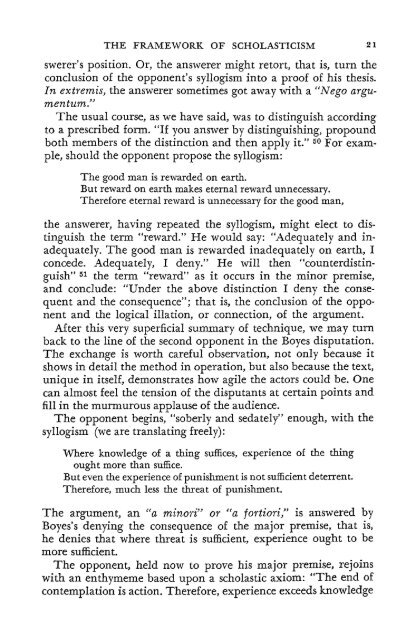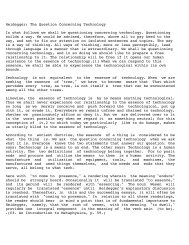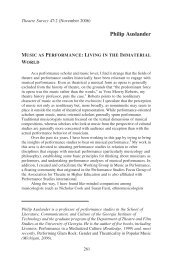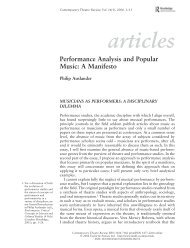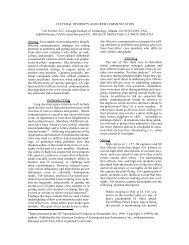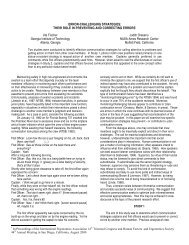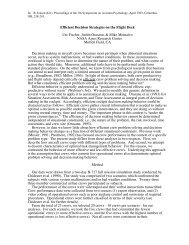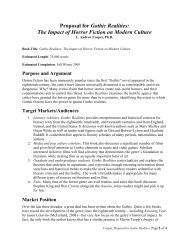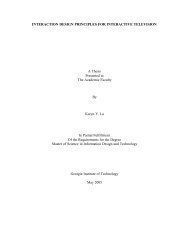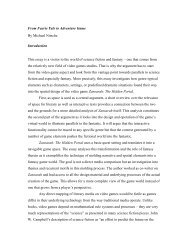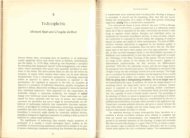william t. costello, sj - The School of Literature, Communication, and ...
william t. costello, sj - The School of Literature, Communication, and ...
william t. costello, sj - The School of Literature, Communication, and ...
You also want an ePaper? Increase the reach of your titles
YUMPU automatically turns print PDFs into web optimized ePapers that Google loves.
THE FRAMEWORK OF SCHOLASTICISM<br />
swerer's position. Or, the answerer might retort, that is, turn the<br />
conclusion <strong>of</strong> the opponent's syllogism into a pro<strong>of</strong> <strong>of</strong> his thesis.<br />
In extremis, the answerer sometimes got away with a "Nego argumentum.'<br />
3<br />
<strong>The</strong> usual course, as we have said, was to distinguish according<br />
to a prescribed form. "If you answer by distinguishing, propound<br />
both members <strong>of</strong> the distinction <strong>and</strong> then apply it." 50 For exam-<br />
ple, should the opponent propose the syllogism:<br />
<strong>The</strong> good man is rewarded on earth.<br />
But reward on earth makes eternal reward unnecessary.<br />
<strong>The</strong>refore eternal reward is unnecessary for the good man,<br />
the answerer, having repeated the syllogism, might elect to distinguish<br />
the term "reward." He would say: "Adequately <strong>and</strong> in-<br />
adequately. <strong>The</strong> good man is rewarded inadequately on earth, I<br />
concede. Adequately, I deny." He will then "counterdistin-<br />
guish" 51 the term "reward" as it occurs in the minor premise,<br />
<strong>and</strong> conclude: "Under the above distinction I deny the conse-<br />
quent <strong>and</strong> the consequence"; that is, the conclusion <strong>of</strong> the opponent<br />
<strong>and</strong> the logical illation, or connection, <strong>of</strong> the argument.<br />
After this very superficial summary <strong>of</strong> technique, we may turn<br />
back to the line <strong>of</strong> the second opponent in the Boyes disputation.<br />
<strong>The</strong> exchange is worth careful observation, not only because it<br />
shows in detail the method in operation, but also because the text,<br />
unique in itself, demonstrates how agile the actors could be. One<br />
can almost feel the tension <strong>of</strong> the disputants at certain points <strong>and</strong><br />
fill in the murmurous applause <strong>of</strong> the audience.<br />
<strong>The</strong> opponent begins, "soberly <strong>and</strong> sedately" enough, with the<br />
syllogism (we are translating freely):<br />
Where knowledge <strong>of</strong> a thing suffices, experience <strong>of</strong> the ought more than suffice.<br />
thing<br />
But even the experience <strong>of</strong> is punishment not sufficient deterrent.<br />
<strong>The</strong>refore, much less the threat <strong>of</strong> punishment.<br />
<strong>The</strong> argument, an "a minori" or "a fortiori" is answered by<br />
Boyes's denying the consequence <strong>of</strong> the major premise,<br />
that is,<br />
he denies that where threat is sufficient, experience ought to be<br />
more sufficient.<br />
<strong>The</strong> opponent, held now to prove his major premise, rejoins<br />
with an enthymeme based upon a scholastic axiom: "<strong>The</strong> end <strong>of</strong><br />
contemplation is action. <strong>The</strong>refore, experience exceeds knowledge<br />
21


